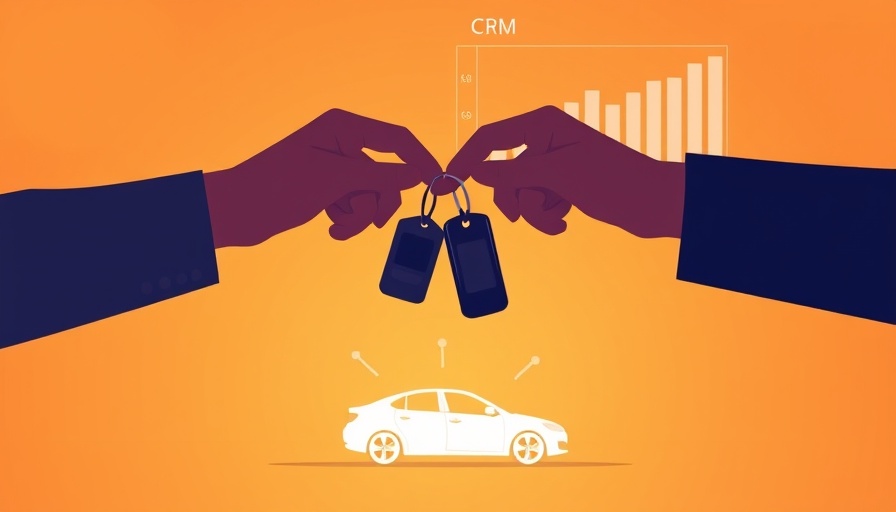
Is Your Automotive Business Prepared for 2025?
The automotive industry is rapidly evolving, with an increasing percentage of buyers willing to complete car purchases online. According to recent studies, this figure has risen to 57% in 2024, highlighting a significant shift in consumer behavior. To not only keep up but thrive in this competitive environment, automotive businesses must leverage advanced Customer Relationship Management (CRM) systems.
Understanding the Role of an Automotive CRM
An automotive CRM is not just a tool; it is a crucial platform designed to gather and analyze customer data to manage sales processes effectively. By evaluating customer interactions and preferences, CRMs help dealerships identify high-quality leads and improve sales strategies, ultimately leading to increased revenue. This data-driven approach is essential as dealerships strive to optimize their operations and enhance customer relationships.
Top CRMs for Automotive Businesses in 2025
In this landscape, several CRMs stand out for their unique features tailored for automotive businesses. Here are five noteworthy options:
- HubSpot: Renowned for its comprehensive all-in-one platform that includes sales, marketing, and customer service tools. Its lead capture capabilities and AI integrations allow for effective lead scoring and streamlined customer interactions.
- VinSolutions: Focused on integration and automating the sales process, making it an excellent choice for dealerships with a high volume of leads.
- Salesforce: Capable of meeting more extensive CRM needs with customization options that allow dealerships to tailor the system to their specific processes.
- Cars.com: Not only a CRM but also a marketplace, providing tools to connect directly with potential customers.
- DealerSocket: Aimed specifically at automotive dealers, offering robust reporting and analytics features that help forecast sales trends.
Benefits of Implementing a CRM
The advantages of using an automotive CRM are compelling. Firstly, these systems assist dealerships in tracking interactions across various touchpoints—whether online or offline—ensuring that all customer communications are recorded and accessible. Secondly, through effective lead management and scoring, sales teams can prioritize efforts on leads with the highest likelihood of conversion. Lastly, implementing a CRM can significantly reduce marketing costs—like Airstream's success in decreasing their cost per lead by approximately 44% after adopting HubSpot.
Choosing the Right CRM for Your Dealership
When selecting a CRM, consider factors such as the size of your dealership, budget, and specific needs related to managing customer relationships. A step-by-step approach often helps; initially, identify your core challenges, research potential CRM options, and request demos or trials to assess how well they fit into your existing workflows.
Concluding Thoughts
As the automotive landscape continues to change, the need for effective CRM solutions becomes increasingly critical. With the right CRM, your dealership can not only enhance follow-ups and customer engagement but can also turn leads into loyal customers. Embrace the technology that can keep you at the forefront of this competitive market and transform how you interact with clients.
 Add Row
Add Row  Add
Add 

 Add Row
Add Row  Add Element
Add Element 




Write A Comment